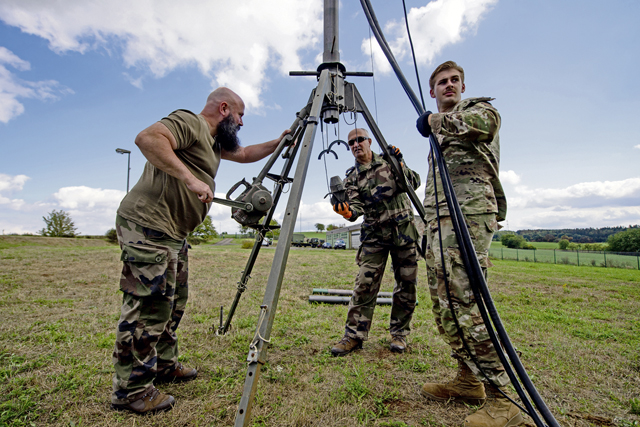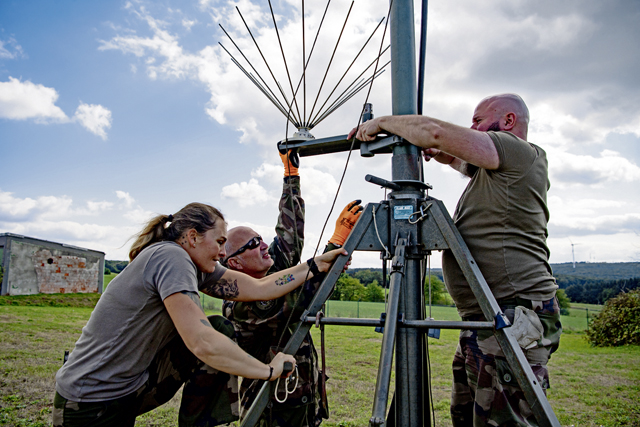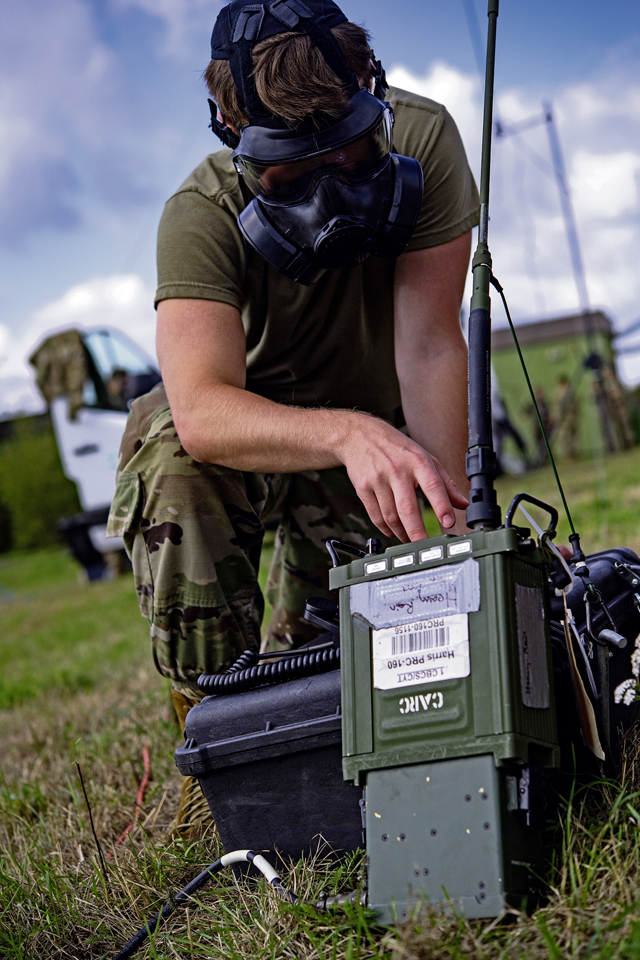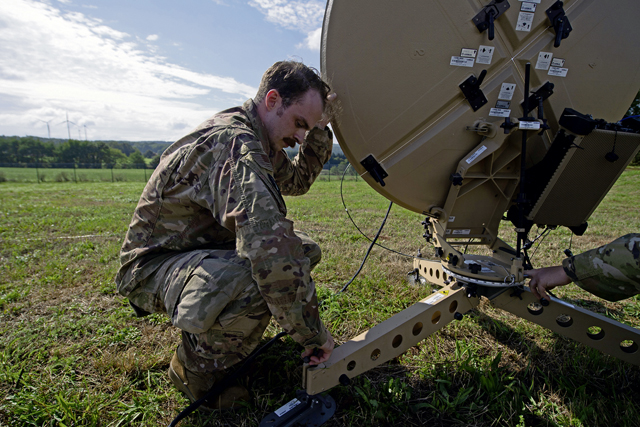
The 1st Combat Communications Squadron hosted the third evolution of their annual Heavy Rain exercise at and around Ramstein Air Base, Sep. 12-16. Heavy Rain III integrated communicators, operators, and aggressors from five branches of the Armed Forces in order to test their ability to provide operationally relevant capabilities at the speed of need in a rapidly changing operating environment.
During the exercise, service members from the 1st CBCS, 1st Air and Space Communications Squadron, 1st Communications Maintenance Squadron, 4th Air Support Operations Group, 44th Expeditionary Signal Battalion, Joint Communications Support Element, 527th Space Aggressor Squadron, and partners from the French military were tasked with detecting and overcoming interference in the Electromagnetic Spectrum.
“This exercise challenges how we detect and resolve communications interference, which will better prepare us to operate on the modern battlefield” said Senior Airman Evan McDonald, 1st CBCS tactical communications planner.

The French military and 527th SAS challenged service members’ ability to maintain C2 communications with the Wing Operations Center and perform other mission specific tasks.
Once interference was detected, teams explored alternative forms of communications to maintain contact with the WOC, or maneuvered to another location to re-establish the connection. The WOC tracked the team’s movements and advised them on how to proceed when needed.
The exercise approximated the operating environment that Airmen and their joint counterparts expect to experience during a high-end fight. Airmen were expected to demonstrate the ability to perform communications related tasks across a broad spectrum that goes beyond their AFSC-specific training. Master Sergeant Chuck Fletcher, the lead planner for the exercise, believes it is an operational imperative that Airmen perform well in several disciplines: “As we expand our skillsets to become multi-capable Airmen within the communications community, we can look at how the teams are formed and work toward not just specializing in radio or network, but being expeditionary communicators. If we come to the modern battlefield with yesterday’s equipment and training, we are going to be in a tough spot. We are pushing ourselves to think, train, and operate forward which means that we are encouraging Airmen to push boundaries while staying moral, ethical and legal.”

As the 435th Air Ground Operations Wing modernizes its mission, Heavy Rain prepares communicators to adapt to the ever-changing operating environment.
“The wing is looking at the near-peer threat, whomever they may be. Our role as communicators is to be the connective tissue that connects key decision makers to the tactical edge. Obviously, mission command will play an enormous role in a near-peer fight but the winning commander is likely to be the one that can command and control his or her forces most effectively” said Fletcher.
“It is important to have exercises like this to challenge our members outside of their comfort zone,” said McDonald. “Heavy Rain III gave members the experience of needing to adapt on the spot in a stressful environment. We will do this again and we will push the boundaries even farther next time. My colleagues never cease to amaze me with their ability to adapt to the challenges we throw at them.”



